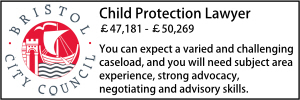Councils do not fully understand personal budget process, Ombudsman warns
- Details
A report by the Local Government and Social Care Ombudsman has found that “too often” parents of children with special educational needs and disabilities (SEND) are not being given a choice in how their children are supported because their local councils “do not fully understand the personal budget process”.
A personal budget is an amount of money identified by the council to deliver provision set out in an Education, Health and Care (EHC) plan so the parent can get involved in arranging the provision.
The Ombudsman’s report, Parent power: learning from complaints about personal budgets, highlights case studies which reveal inconsistencies in how councils have complied with their personal budget duties.
Common themes include administrative failings, such as delays in making payments or considering requests, said the Ombudsman.
However, the report also found “more concerning” issues including councils being “unaware of their duties”, for instance, not recognising general parental requests for funding as a request for a personal budget.
The Ombudsman found that in many local authority areas there is “simply a lack of information available to parents that these budgets are even an option”.
The report notes that councils must take into account the individual circumstances of each request for a personal budget.
“They should prepare a personal budget unless doing so would have a negative impact on other EHC plan holders, or would not be an efficient use of the council’s resources”, said the Ombudsman.
Another common issue highlighted in the report was councils not giving clear reasons for a decision and “failing to give advice on the right to review”.
The Ombudsman recommended that when making and communicating decisions on personal budgets/direct payments, councils should follow “good administrative practice” by providing reasons for their decisions and information on the right to ask for a review.
Another common issue highlighted by the Ombudsman was delays in considering parental requests, leading to financial strain on parents and carers while they wait for decisions.
The Ombudsman warned: “In many of the cases, families have had to dip into their own pockets to continue funding support when the council has not delivered its duties – compounding financial strain upon an emotional one”.
Paul Najsarek, Local Government and Social Care Ombudsman, said: “Parents are often best placed to understand their children’s needs. The use of personal budgets should allow councils and parents to act as equal partners to determine the support needed and how this is funded, but without this in place, parents can often feel left at the mercy of a system where systemic problems are compounded by a lack of understanding by those in power.
“The problems we uncover in our investigations about personal budgets is yet another facet of evidence that demonstrates just how fractured the system is for children and young people with special educational needs and disabilities."
Najsarek added: “Our evidence across the board suggests the system is in crisis. The Government has come up with proposals to improve the system, and it now needs to progress urgently with the reforms it has pledged to make in this year’s improvement plan.
“I would also urge council leaders to reflect on the practical learning the report offers to ensure parents in their areas are given the freedom to choose how their children are supported.”
Lottie Winson






























